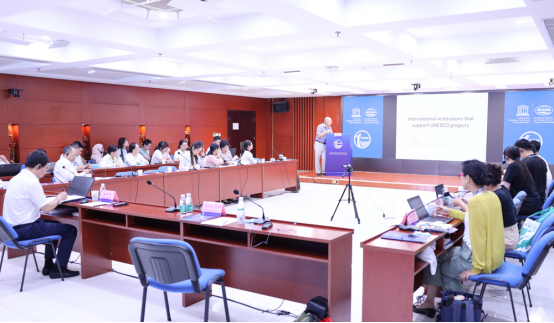On July 27, 2023, with the Governing Board Meeting of International Research and Training Center on Erosion and Sedimentation (IRTCES), four distinguished scientists were invited to give lectures on “sustainable erosion control and sediment management in a change climate”: Prof. Helmut Habersack, the President of the World Association for Sedimentation and Erosion Research (WASER) and Professor at the University of Natural Resources and Life Sciences in Vienna; Prof. Cui Peng, Academician of the Chinese Academy of Sciences (CAS) and Researcher at the Institute of Mountain Hazards and Environment of the CAS and the Ministry of Water Resources of China; Prof. Shahbaz Khan, Representative of UNESCO in China and Director of the Multisectoral Regional Office for East Asia; Prof. Miodrag Zlatic, the former President of World Association of Soil and Water Conservation (WASWAC) and Professor at the University of Belgrade, Serbia.
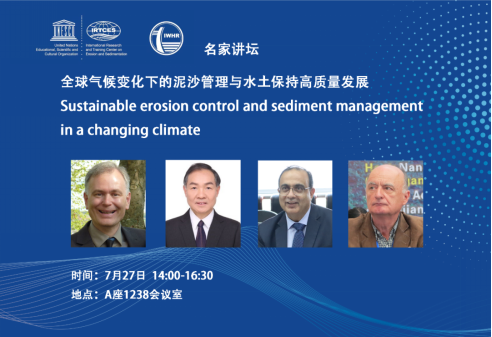
Prof. Helmut Habersack gave a presentation on the World's large river initiative. He provided an overview of the initiative’s background, five major activities, and how it integrates with the International Plan of Action. Using the Danube, Niger and Mekong rivers as examples, he shared research findings on hydrology, sediment transport and morphology, ecology and water quality, and explained their socio-economic impacts.
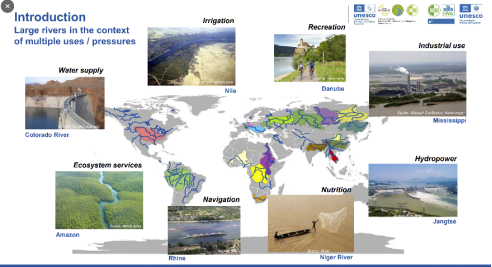
Academician Cui Peng gave a presentation on Flash flood and debris flow early warning and risk forecasting. He introduced the great hazards of flash floods and debris flow disasters and analyzed their process and mechanism. He also shared practical examples of the data support, parameter setting, algorithm efficiency, multi-scale forecasting and warning systems used for early warning and risk forecasting.
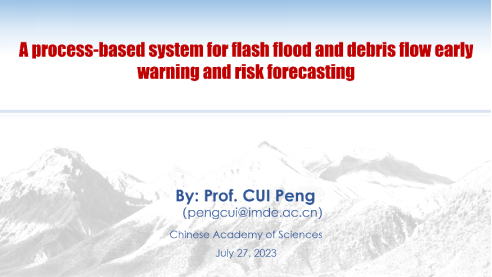
Prof. Shahbaz Khan presented with the topic of “Open science and open data for a water secure world”. He outlined the water-related objectives of the United Nations 2030 Agenda for Sustainable Development, as well as the priority areas of the ninth phase of the UNESCO Intergovernmental Hydrological Programme. Prof. Shahbaz Khan analyzed the gaps in the fields of science, technology, knowledge and data. He also elaborated the new technologies including artificial intelligence. He emphasized the importance and implementation of open science and open data.
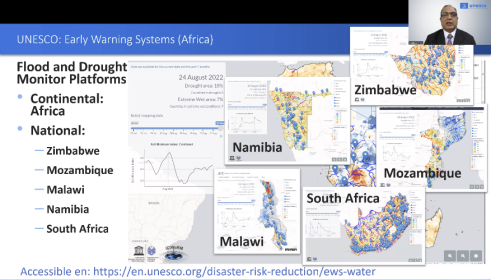
Prof. Miodrag Zlatic gave a presentation on the Importance of disaster risk reduction and sustainable land management on the survival of soil and water resources. He introduced the significance of soil and water resources and provided insight into how disaster risk can be reduced and sustainable land management can be developed based on successful experiences of organization such as UNESCO, FAO, Global Environment Fund (GEF) and Swedish International Development Cooperation Agency (SIDA).
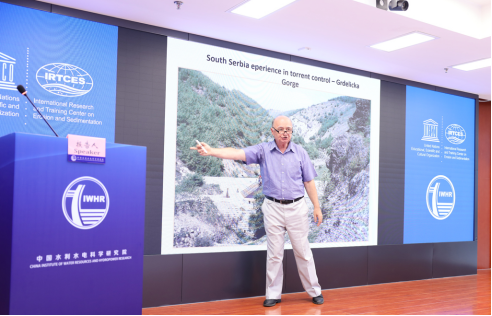
This meeting was hosted by the IRTCES, and more than 50 researchers, postgraduates and international students in related fields attended the meeting. In-depth discussions between the presenters and participants were developed on the issues of soil and water resources management, early warning and prediction of water hazards, etc.
